It’s only January, but already I’m tired of looking out at a bleak sheet of white. Luckily, I have some plants that are a sensory delight all year ‘round—scented geraniums.
Though the flowers are fairly insignificant, just touching a leaf releases the aroma of roses, mint, or lemon.
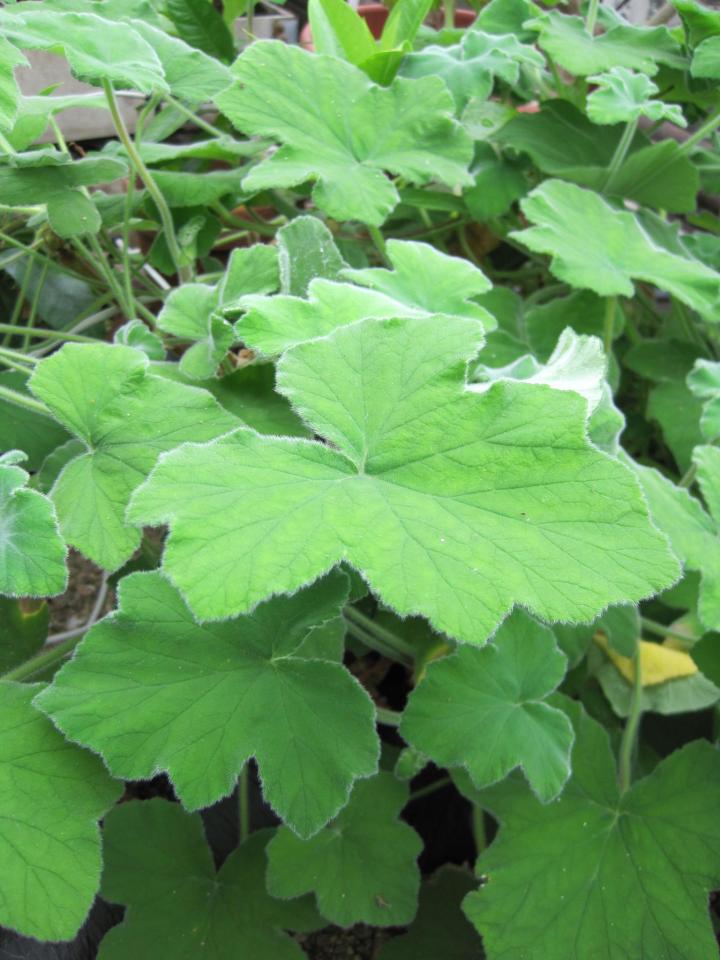
Their fragrance is contained in small beads of oil located at the base of the tiny leaf hairs. Crushing a leaf breaks the beads and releases the scent. Some leaves need only be brushed to produce fragrance. With aromas like coconut, chocolate mint, cinnamon rose, and ginger, who can resist? The oils are often used in aromatherapy to invoke feelings of peacefulness, calm, and happiness.
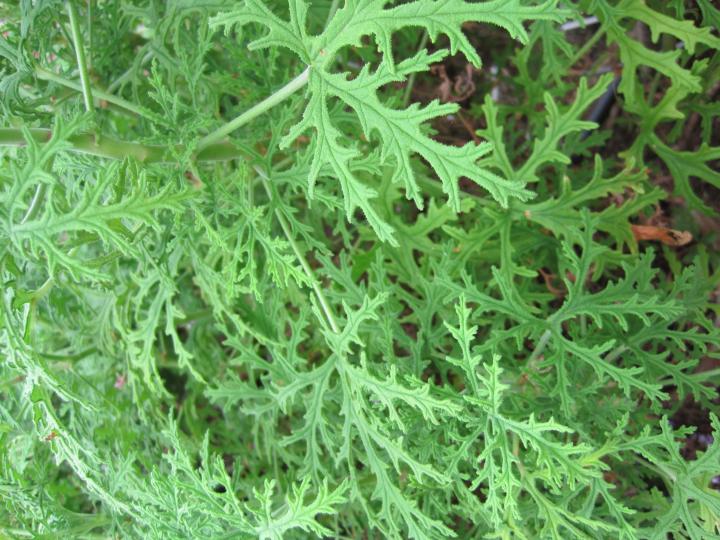
A Short History of Scented Geraniums
Scented geraniums are native to South Africa, where they grow in size from low trailing plants to 5-foot-tall shrubs. Plant hunters brought them to England in 1632, where they were an instant hit during those pre-air-freshener days. By the 1790s, they were highly fashionable and widely grown in Europe and America. Fragrant oils distilled from the leaves were used to scent perfumes, soaps, and cosmetics.
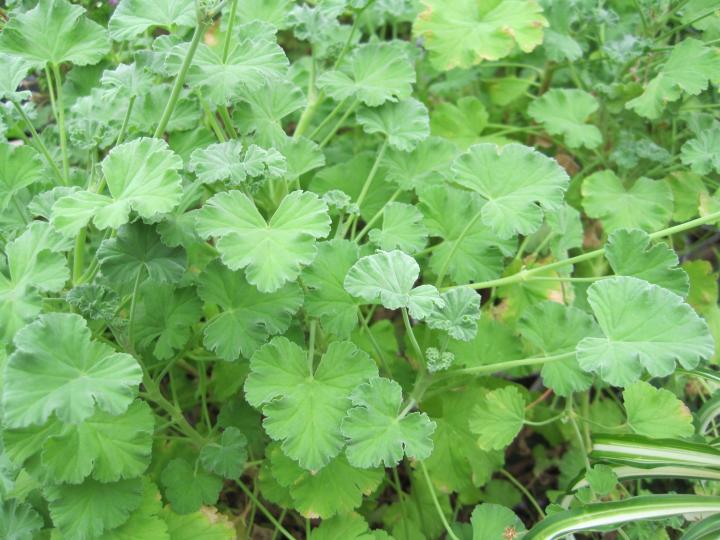
In the early 1800’s, large quantities of rose geraniums were grown as a substitute for expensive rose oils. Victorian gardeners loved these plants, but their popularity waned when their cousin, the zonal geranium—with its big showy blossoms—became all the rage.
Now, they are becoming trendy again, and with several hundred known varieties, there are plenty to choose from.
How to Grow Scented Geraniums
They are easy to grow, prefer a cool sunny spot, and are somewhat drought resistant. They are a good plant for those of us who water infrequently. They are light feeders, so a monthly drink of low-nitrogen liquid fertilizer from spring through summer is plenty. Overfeeding can diminish their fragrance. Don’t be afraid to cut the plants back to keep them in shape, and try your hand at rooting the cuttings in damp sand or vermiculite. They are easy to propagate, and soon you’ll have plants to swap with friends. They are tender perennials, so if you put yours outside for the summer, be sure to bring them inside when frost threatens.
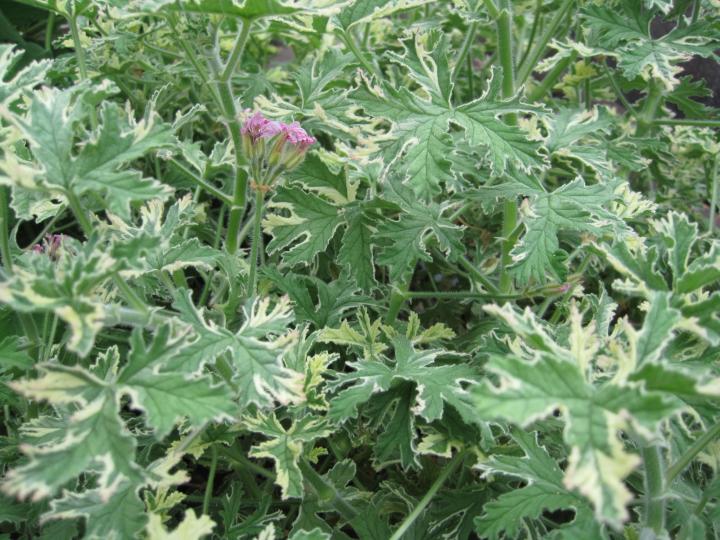
They can be tall, compact, or rambling with velvety or smooth leaves ranging from gray to deep green or variegated with white or yellow. They can have curled, lobed, deeply cut, fringed, or scalloped edges. 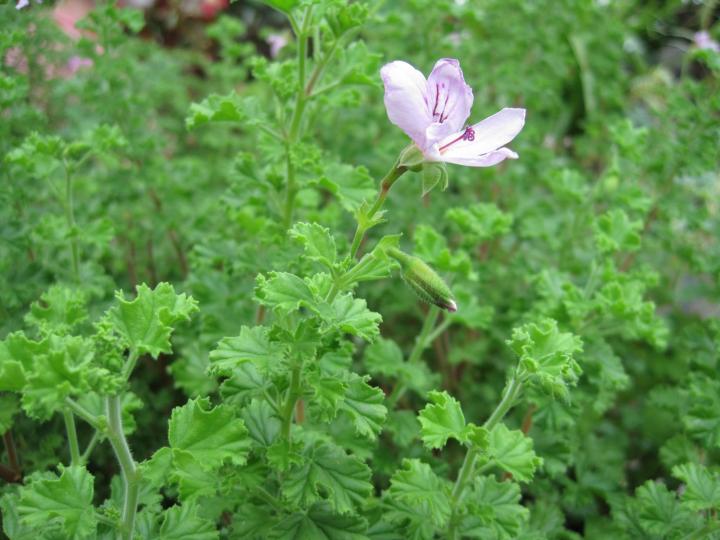
Though usually tiny, the flowers are pretty and range in color from white and pink to lavender and purple.
Lemon Scented Geranium And Other Scents
Lemon-scented geranium plants clear the mind.
Rose-scented geraniums are uplifting and are sometimes used for banishing anxiety and depression.
The multitude of fragrances are grouped into six classes— fruit, lemon, mint, pungent, rose, and spice.
Pungent varieties have the largest flowers. The plants flower freely from May through October and occasionally bloom indoors in winter if given enough sun.
This is one houseplant that really makes “scents” to grow.







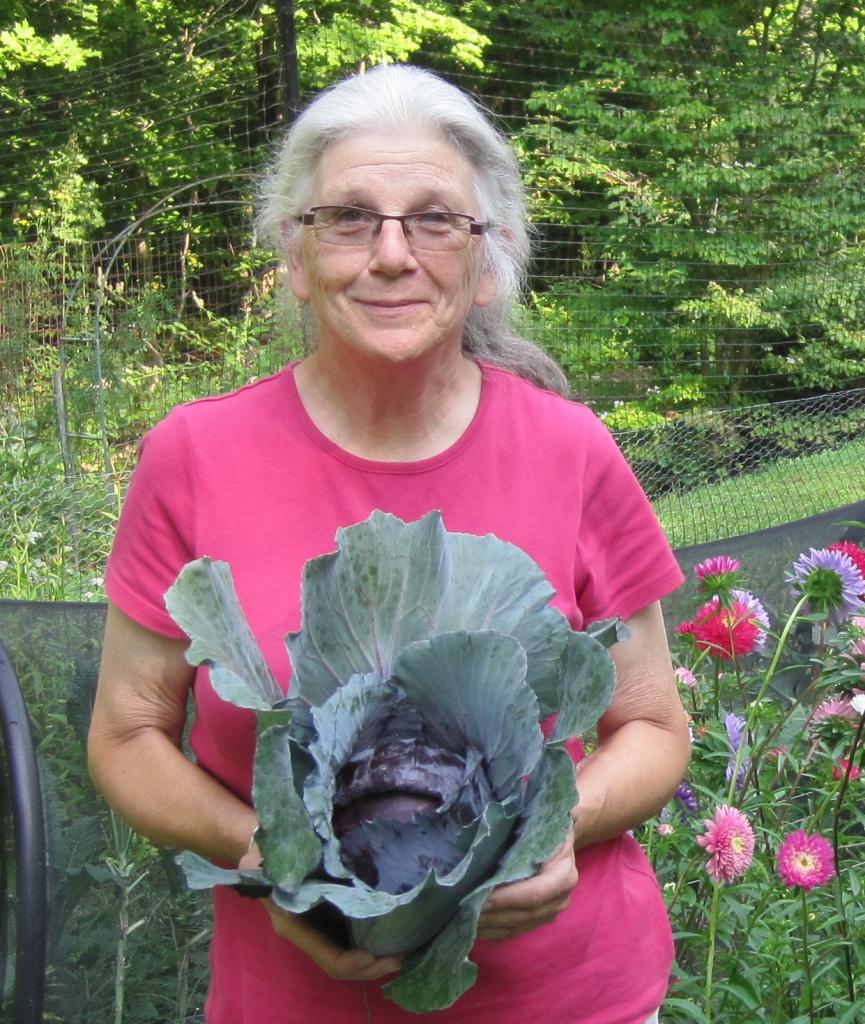
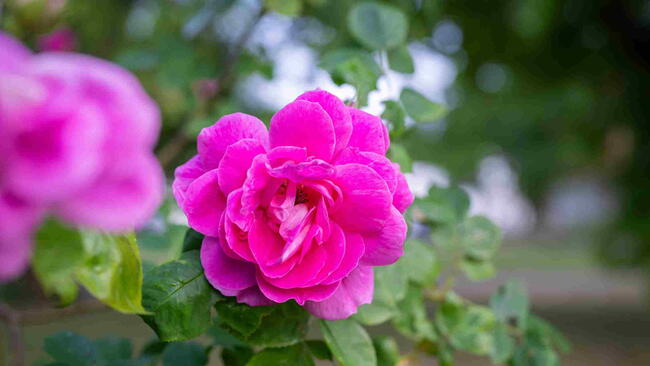







Comments